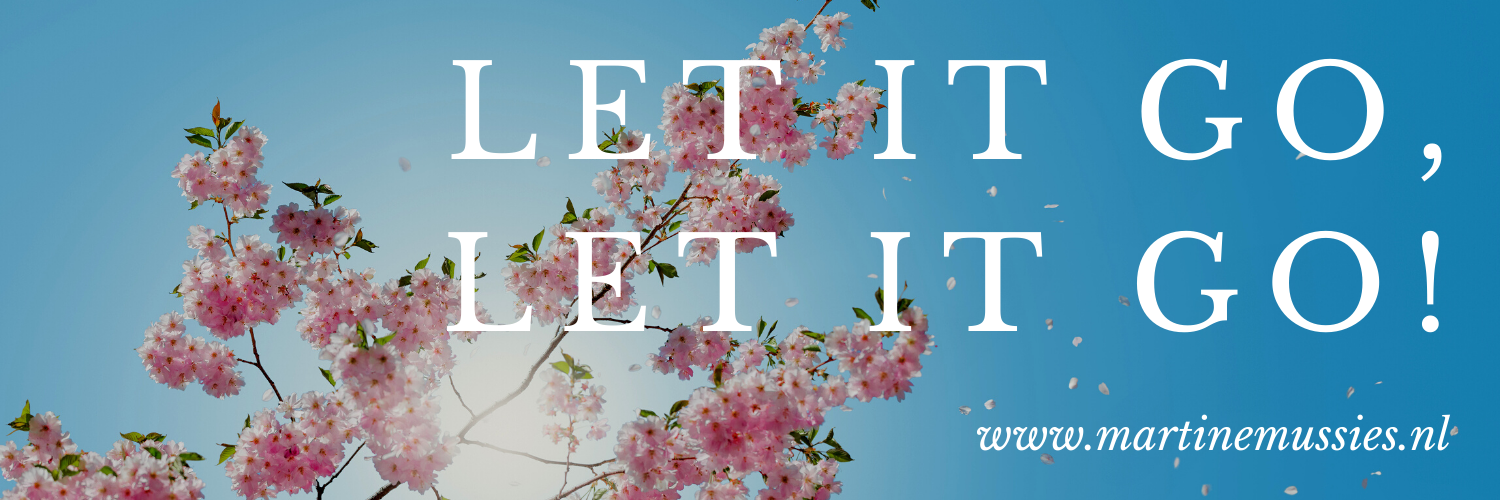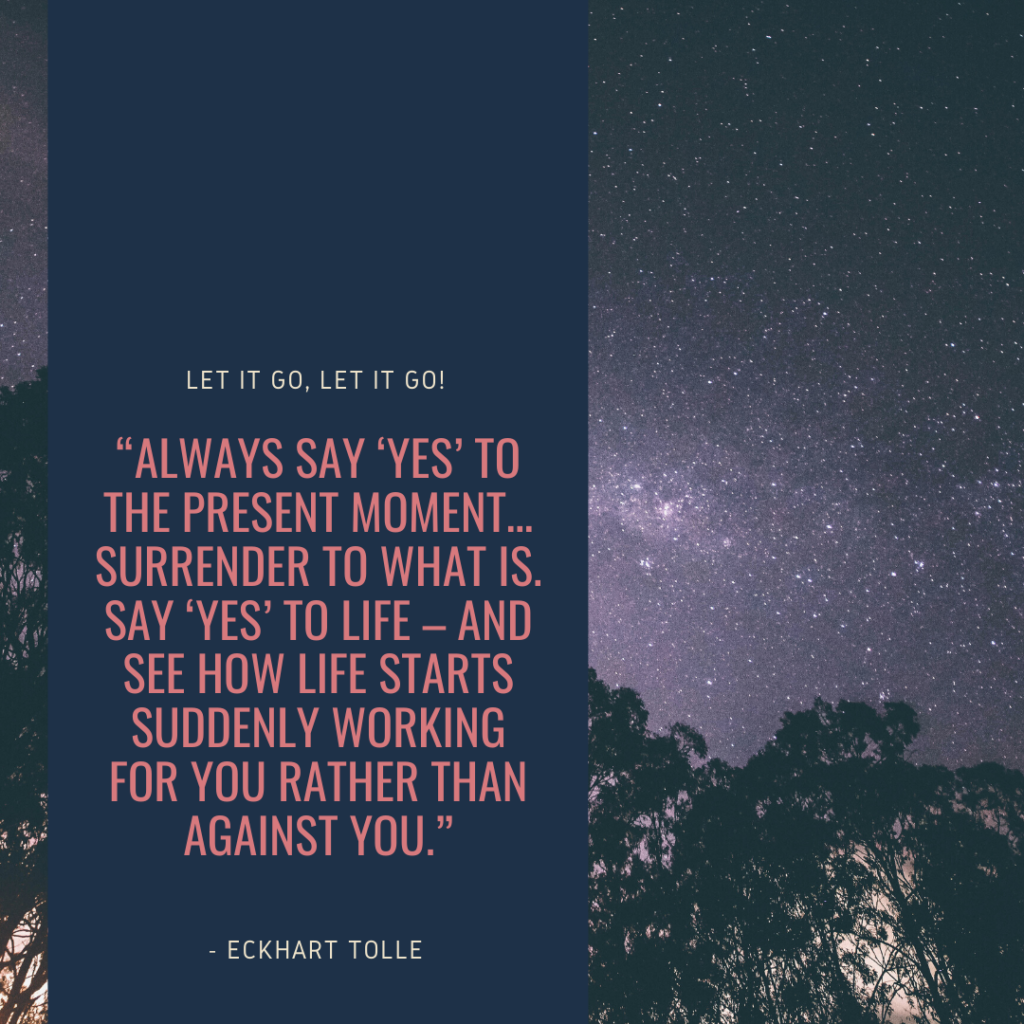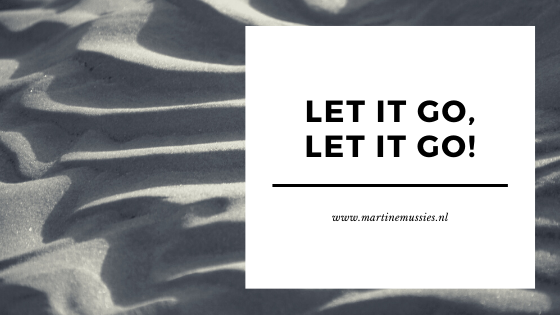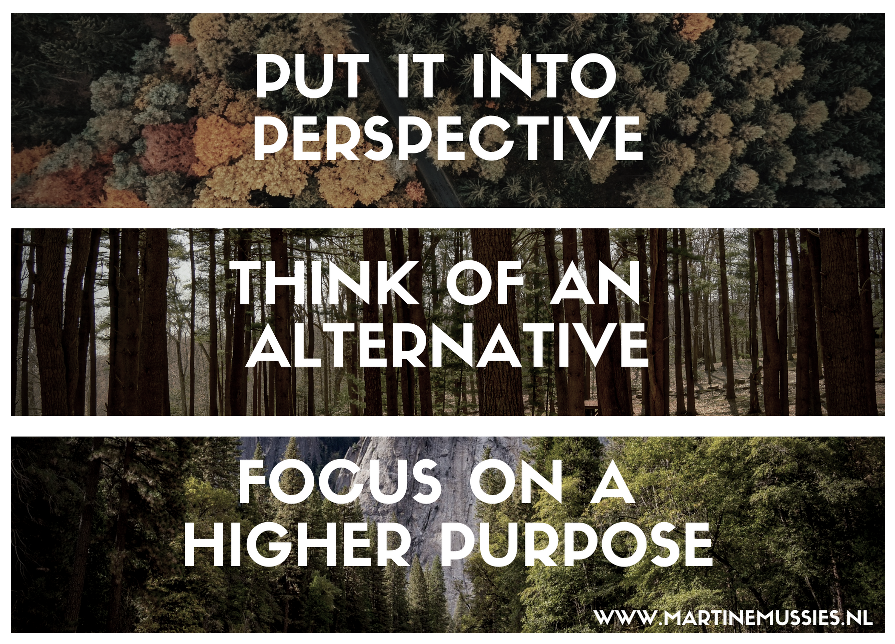Letting Go is Difficult But Allows Us To Grow

Let it Go! Let it Go! 😉 – people with autism are notorious for their inability to let go – and I am no exception to this. That is why I wrote the following blog post for The Art of Autism: Letting Go is Difficult But Allows Us To Grow. A Dutch version was already published at Ik Overtref Me. Hope it helps! <3
Last night, I lay awake staring at the ceiling, for the umpteenth time. Mulling, grinding, ruminating. Overthinking things that have happened, for example. And/or making up doomsday scenarios for the future. And worrying, that if I do not sleep, soon, the next day, I’ll probably be like a zombie. That has to change, but how? In this blog I share two stories about detachment, both from the Zen tradition. One is about developing a non-judgmental attitude and the other one is about the letting go of things that have happened. Combined with three rules of thumb for a detached attitude to life, and some reflection questions, I hope that these stories will offer you more peace of mind, and less stress. Sleep well!
The next day, in the dojo. I am in seiza, the Japanese meditation posture, and desperately try to detach. Meanwhile my head is spinning overtime. “Yeah, my thoughts are clouds in the sky, or yes, leaves in the water, whatever…. but arghhhh, what if I don’t finish my piece before the deadline?!?!” Doesn’t work at all, of course. How do you do that, detaching and letting go? Something finally started to dawn on me when sensei told me the story about the farmer and his horse. Here it is:
The Farmer and his Horse
Once upon a time… in ancient China… a farmer who owned a horse. “You’re so lucky” his neighbours said, “to have a horse to pull the cart for you”. “Maybe,” replied the farmer.
One day the farmer did not close the gate properly and the horse ran away. “Oh no! This is terrible news,” his neighbours cried. “Such a terrible accident!” “Maybe,” replied the farmer.
A few days later the horse came back and brought six wild horses. “How wonderful! You’re so lucky,” his neighbours told him. “Now you’re rich! “Maybe,” replied the farmer.
The next week, the farmer’s son broke his leg when he wanted to tame one of the wild horses. “Oh no!” the neighbours screamed, “such bad luck!” “Maybe,” replied the farmer.
The next day the soldiers came and took all the young men with them to fight in the war. The farmer’s son was left behind, because they had nothing to do with a cripple. “You’re so lucky” his neighbours laughed. “Maybe,” replied the farmer.
There are different versions of this story, with different situations in which the farmer, his horses and his son end up. But its morality remains the same: when we interpret a situation as only negative or only positive, it shapes the way we feel, and our feelings shape the way we react.
The story of the Taoist peasant shows that we can never really know how a situation will turn out. The fact is that there are no intrinsic ‘opportunities’ or ‘disasters’: there is only what happens and how we choose to react. In other words, it is not the situation that drives us, it is our thoughts on the situation.

Looking at it this way, would it not make much more sense to alter our attitude, in order to look for opportunities in every situation? If we do that, we are taking another step where we use change to become stronger. But in order to do that, we have to let go of our previous ideas. And detach. And while I say I want that, something in me does not want that at all. I don’t want to let go, I want to control. And that is why I am often frustrated, unsatisfied, angry, dissatisfied and disappointed. I hate it when things go differently than I planned.
It’s not weird that I’m not so good at letting go, because holding on is what I’ve always done. Letting go is new. And growing hurts.
On the beach I grab a hand of sand and the harder I try to squeeze it, the faster it slips through my fingers and out of my hands. Only when I relax and keep my hand open does it stay there. And I even see a little worm. It’s what it is and that’s the way it is.

My three rules of thumb
Practise makes perfect, they say, and although I will never be perfect, I did feel more free – liberated from my burdens – at the moments I succeeded to let things go. But how can I practice letting go? “Observe, accept, let go” sensei says. First I feel calm about what lives and happens in me. Then fully accept how it is, without resistance. And then I can let go, because I no longer have any influence on it. Easier said than done. And for me the detachment paradoxically only works with the grip of a few rules of thumb. Here are my top three:

Put it into perspective. If I don’t meet that deadline, will the world end? Fortunately, I don’t have that much power. 😉
Think of an alternative. Plan B, C, …Z. If I don’t meet that deadline, what do I do? And also: what is the worst that can happen and if that happens, what do I do?
Focus on a higher purpose. For example: I’m a musician and the stress and pressure at a concert are enormous. Then I try to think about my bigger “Why”. The reasons behind my actions. I am convinced that mankind – the cosmos, even – needs beauty. Thus, I make music to bring people in touch with a glimpse of beauty, to let them enjoy it. And do these people really enjoy the music significantly less with two wrong notes during a two-hour concert? Neh.
These three rules of thumb are mainly about my fear of the future, the unknown. But stress about the past can also get in the way. In both cases it is important to stay in the moment. And there is a beautiful parable about that too, namely that of the Two Monks and the Woman.
The Two Monks and the Woman
An older and a younger monk were travelling together. At one point they approached a river with a strong current. While the monks were preparing to cross the river, they saw a very young and beautiful woman who was also trying to cross. The young woman asked if she could help her to cross to the other side.
The two monks looked at each other because they had vowed not to touch a woman. Then, without saying a word, the older monk picked up the woman, carried her across the river, gently placed her on the other side and continued his journey.
The younger monk could not believe what had just happened. After he had rejoined his companion, he was speechless and an hour passed without a word between them. Another two hours and then three, and finally the younger monk could no longer hold back and he said to his wife: “As monks, we are not allowed to touch women, how can you carry that woman on your shoulders?
The older monk looked at him and said: “Brother, I left her by the river hours ago, why are you still carrying her with you?”
This simple Zen story has a beautiful message about living in the present moment. We can choose to ruminate about past actions or events, but that is an energy leak, because the “now” is all we are. And if the “now” is annoying or difficult, we may wonder what we would say to a loved one if the same thing happened to them. My tips would be: “focus your attention on your breath, on your body. And focus your attention on what is there, the beauty of the imperfection”. Because this is the only way I feel simultaneously present and detached, like in the middle of a hurricane.
Question to think about…
Have you experienced any ‘disasters’ lately? How did you react? How would the Taoist farmer have reacted, in the moment? And what would the older monk have said, afterwards? What would you advise a dear one who is in a similar situation as your ‘disaster’…?

Lovely post! There are so many nuggets of wisdom in this article, and I love the overall message you are conveying. Thank you for sharing!
It is a process when we want and need to let something or somebody go. Because we need to re-imagine our life in a new way, on a new path, and without of that had been left behind.
Absolutely. Not only the past that we should let go but also the “thinking too much of future” mindset.
So true let it go kinda heartbreaking but we always learn from it.Love this article.
I get your message. And I couldn’t agree more.
Such a nice post and lovely read. I can feel with you and I like the message you are imparting and awareness you are spreading among all. And do not hesitate to message me if you need anyone to talk to or need help.
100%! I experienced this first hand, it hurts so much but it is essential…
Oh my gosh so much yes in this post! I appreciate your heartfelt words.
I really love this perspective. I definitely struggle with this.
Even though I cannot relate to the concept of autism, I know that I often Let Go and Let God. Great information and blog post.
Indeed, putting things into perspective is key to letting go.
Love the post! Not letting things in the past prevent us from moving forward!